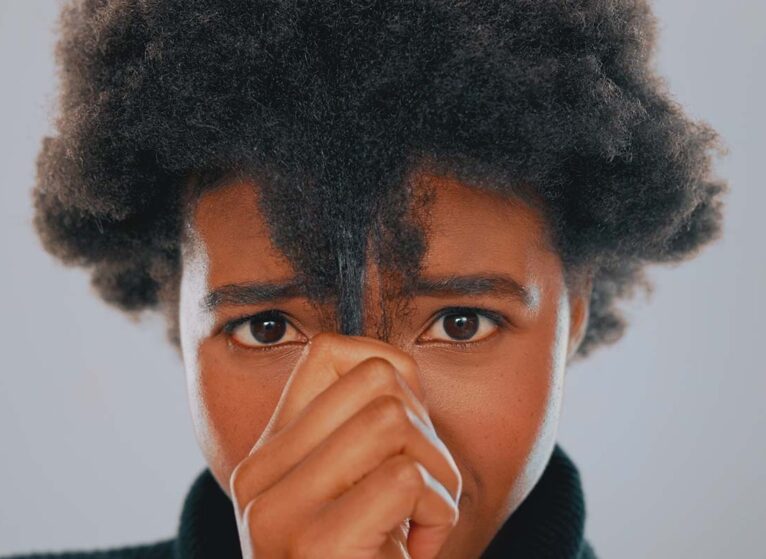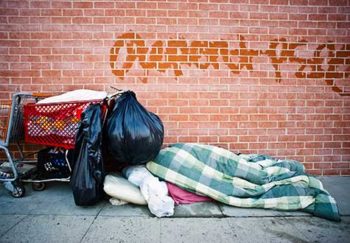It seems like everything we eat or touch these days can cause cancer. Toxic chemicals show up on our fruit, in our makeup, in cleaning supplies. The latest news about hair relaxers causing cancer stands out, however. The research doesn’t just show a vague relationship. It suggests a direct cause and effect.
The recent study by the National Institutes of Health links a commonly used hair product and cancer. Researchers found women who use chemical hair relaxers more than 4 times a year are 2 times more likely to get uterine cancer than those who don’t.
“The Sister Study is a large, U.S.-based study of about 34,000 women ages 35-74. They were followed for about 10 years,” says gynecologic oncologist Paola Gehrig, MD. Compared to women who didn't use hair-straightening chemicals, women who did use them got uterine cancer more frequently. The difference in the risk went from around 1.6% to over 4%.
“We have to be careful and put this study into context. Uterine cancer is still quite uncommon,” adds Gehrig. “But women need to be aware of this association. And Black women, in particular, need to be aware of this association.”
What You Need to Know: Significant Risks for Black Women
Black women aren’t the only ones who use hair straighteners or relaxers or other chemical hair products. But around 60% of women in the study who used hair relaxers were Black. In addition to using the products more overall, Gehrig pointed out that Black women:
- Use hair relaxers more often
- Begin using them at a younger age, so have a longer exposure
- Are twice as likely to die from uterine cancer as white women
Want to Lower Your Risk for Cancer?
A UVA Health primary care doctor can help you learn all the ways you can stay healthy and prevent cancer.
Women of color already face health disparities and healthcare bias. This isn’t because of hair treatments. As one report puts it, racism, not race, drives health disparities.
The Black population has the highest rate of cancer deaths. Black women have a 55% higher mortality rate from endometrial cancer. And deaths from uterine cancer are highest in Black women, according to the National Cancer Institute.
The healthcare system has a lot of work to do, clearly. But what can you do to lower your risk for cancer?
How Hair Relaxers Cause Cancer
There’s still a lot we don’t know about these products. But the study’s authors say:
- Several chemicals in hair relaxers are carcinogens or can increase your hormone levels. These include parabens, Bisphenol A, heavy metals, and formaldehyde.
- People may leave these products on the hair longer than advised. This can injure the scalp, making it easier to absorb the chemicals.
We need more in-depth research, which could take many years, according to Gehrig.
Preventing Uterine Cancer
For now, it’s important to have the facts so you can make an informed decision not only about these products, but also other factors.
If you use hair relaxers, follow these tips:
- Wear gloves
- Follow instructions, especially how long to leave it on your hair
- Don’t use them when you have an open sore on your scalp
Better yet, says Charlottesville-area hairstylist Tonya Jackson, turn to an expert. “My advice would be to seek a professional stylist, and extend the time between chemical treatments,” she says. “I follow the manufacturers’ directions. I apply straightener to the hair and not the scalp. I use a timer to keep up with processing time. And I always use a mild or sensitive-strength straightener.”
Research shows these factors reduce your risk for uterine cancer:
- Birth control pills – they reduce the risk of an overgrowth in the uterine lining, especially when taken for a long period of time
- Using a progestin-secreting intrauterine device (IUD)
- Considering the risk of uterine cancer before starting hormone replacement therapy (HRT)
- Maintaining a healthy weight
- Carefully managing diabetes
The Challenge of Getting the Word Out
Claudette Grant, community outreach and engagement specialist at UVA Cancer Center, says the study adds another layer to an already complex dialogue in the Black community about hair relaxers.
“The discussion is personal and different for each individual,” says Grant. “A few years ago, I made the decision to stop using chemicals in my hair. I wanted to be more natural and the chemicals were beginning to damage my hair, so the decision was easy for me. I was not worried about cancer. But now that I am aware of the study, it does make me even more cautious about the use of certain hair products.”
Societal Pressure to Straighten Hair
At the heart of this discussion is the long-standing issue of race-based hair discrimination. This discrimination against Black individuals’ natural hair texture and protective styles at school and work persists today, according to the CROWN Coalition. The coalition lobbies for laws to protect from this discrimination.
Here are a few statistics from the coalition’s research:
- Black women are 54% more likely to feel like they have to wear their hair straight to a job interview to be successful.
- 53% of Black mothers say their daughters have experienced racial discrimination based on hairstyles as early as 5 years old.
- Over 20% of Black women between 25-34 have been sent home from work because of their hair.
- 44% of Black women under age 34 feel pressured to have a headshot with straight hair.
“I’ve been getting them since I was a little girl,” says Charlottesville resident Shayla Washington. “My natural hair is difficult to tame, so relaxers make it easier to manage. But the cost and health concerns associated with them definitely give me pause.”


